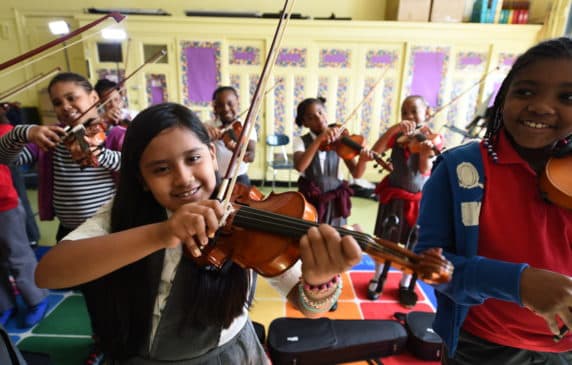Music fills our lives: from the music you share online to the songs playing in shops and restaurants, we are rarely far from music. More than just listening, playing music gives the brain a multi-sensory “workout” that strengthens several types of sensing and thinking. This is akin to how playing sports improves your physical condition more than watching them.
Not surprisingly, clear improvements in hearing occur after prolonged music training. Musicians can detect smaller differences in frequency (the number of sound waves per second), making both speech and music easier to hear.
Similarly, brain areas responsible for muscle movement and touch sensation grow in mass and volume with music training. This is especially true in muscles and body parts that articulate with a musician’s instrument (i.e. mouth for a wind player, fingers for a piano player, etc.).
An unexpected type of thinking that improves with music making is socio-emotional awareness. Playing music together can improve interpersonal communication as well as manage and express emotions.
Many studies also show a link between reading comprehension and music making, perhaps due to the overlapping skills attained when learning to read music.
Later in life, some of the strongest memories retained are of people’s favorite songs or songs that had special meaning for them.
All of this comes together to show how vital music is to our brain. Singing a song or playing an instrument is not only a special activity that benefits music aptitude, but it is also one of the most powerful methods of “cross-training” for your brain.
Adapted from MUSIC AND LEARNING: DOES MUSIC MAKE YOU SMARTER? by Gabriella Musacchia & Alexander Khalil
Special thanks to Gabriella Musacchia, member of Save The Music Foundation’s Music Education Advisory Board

